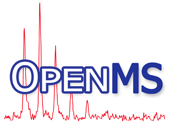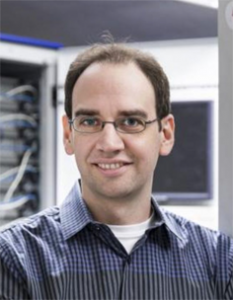Computational MS and Metabolomics Research
Our group develops novel algorithms for the analysis of high-throughput proteomics and metabolomics data acquired on modern mass spectrometers.
OpenMS

More than a decade ago the open source project
The focus of
We are happy to help you integrate your algorithms and tools related to computational mass spectrometry
into the
For further information, installer, and tutorials please visit
www.openms.de
or our GitHub repository at
https://github.com/OpenMS/OpenMS
Proteomics
Our current efforts in proteomics are focused on efficient algorithms for labeled and label-free quantification, novel identification methods, data integration, and processing to advance the field in emerging areas of mass spectrometry. We typically employ these methods in worldwide collaborations with experimental partners to study a wide range of scientific questions. All algorithms and tools developed by our group are open-source and publicly available via
Current research and development
Structure Biology:
Cross-linking coupled to mass spectrometry (XL-MS) has proven to be a powerful tool in studying structures and interactions of proteins with other biomolecules. We currently focus on developing the computational tools OpenPepXL and RNPxl for Protein-Protein and RNA-Protein Cross-Linking and combine cross-link data with information from evolutionary coupling to constrain protein modeling and docking. For further details see our publications and tools page.
Top-Down:
In Top-Down proteomics (MS analysis of intact, non-digested protein), our goal is to develop novel algorithms for protein characterization and quantification. Currently, we are developing an efficient method to process complex Top-Down spectra into simple mass lists (i.e., deconvolution of spectra) that will facilitate the following analysis. We are also interested in analytical methods jointly using Top-Down and conventional Bottom-Up methods for better investigation of a biological sample or therapeutic proteins.
Metaproteomics:
Microbial communities like gut bacteria show remarkable capabilities in processing nutrients or substrates. To better understand these communities and processes, we develop tools for the analysis of protein-based stable isotope probing experiments.
For details see our publication and tool MetaProSIP.
Metabolomics
In metabolomics, we develop novel methods for metabolite identification and quantification of metabolomics DDA and DIA/SWATH-MS experiments for the discovery of novel biomarkers and metabolite screening in different biological settings (e.g., food or blood plasma). Additionally, we tackle the challenge of identifying unknown metabolites by combining different identification techniques.
Immunopeptidomics
Immunopeptidomics targets the identification of affinity purified, unspecifically cleaved peptides with particular sequence motifs bound to the human leukocyte antigen receptor (HLA). These HLA-bound peptides play a significant role






